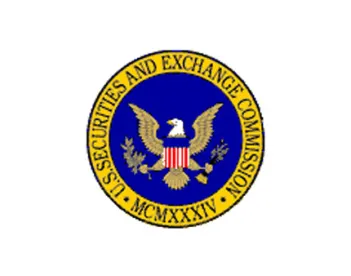On March 10, 2014, the Enforcement Division of the Securities and Exchange Commission (SEC) announced the Municipalities Continuing Disclosure Cooperation Initiative (MCDC) – an offer for municipal issuers and their underwriters to turn themselves (and others) in now for certain potential violations of the securities laws in exchange for lighter punishments, in contrast to harsh penalties threatened for those caught after the September 9, 2014 deadline. The offer extends only to potential violations of the antifraud rules made in an Official Statement regarding the issuer’s past compliance with continuing disclosure agreements and not to other violations of the antifraud provisions. The scope of transactions potentially covered by the MCDC is extensive and the terms provided in SEC materials raise many questions. The chief of the Enforcement Division’s Municipal Securities and Public Pensions Unit, LeeAnn Gaunt, and her deputy Mark Zehner provided additional insight into MCDC in response to questioning during recent panels chaired by Paul Maco, one of the authors of this Alert.1 That insight is incorporated into this Alert.
The MCDC focuses on representations in an Official Statement regarding past compliance with continuing disclosure agreements (CDAs), such as: “Over the past five years the Issuer has complied with its obligations under its Continuing Disclosure Agreements.” The question presented by the MCDC is: do any statements made in Official Statements materially misstate the issuer’s or obligor’s compliance with CDAs in the five years preceding the date of the Official Statement? If the answer is “potentially,” the SEC expects the details to be reported.
This Alert provides the relevant legal background, describes the differing terms of the offers extended to issuers and underwriters as well as the “prisoner’s dilemma” intentionally created between issuer and underwriter, gives considerations to take into account in evaluating the offer, and describes steps to keep in mind going forward.
Background:
The municipal market is generally exempt from the registration and reporting requirements of federal securities laws that apply to public companies. As a result, investors historically found disclosure relating to municipal securities hard to come by. Twenty years ago, the SEC adopted amendments to Rule 15c2-12 (Rule), creating a framework for continuing disclosure in the municipal securities market. The amendments followed a simple framework based on two key requirements. First, an underwriter may not bring municipal bonds to market unless the issuer, or an obligor in the case of conduit and similar financings, enters into a CDA meeting the requirements of the Rule and described in the Official Statement for the offering. Second, the Official Statement must contain a description “of any instances in the previous five years in which [the issuer(s) or obligor(s)] failed to comply, in all material respects, with any previous undertakings.” An issuer or obligor’s response to this second requirement may violate the antifraud provisions if the response is materially misleading, and these types of misstatements are the focus of the MCDC. Underwriters may be on the hook as well, assuming the statement is materially misleading and the underwriter is unable to demonstrate it formed a reasonable basis for belief in the statement prior to underwriting.
Today, CDA filings are sent to EMMA, the web-based system of the Municipal Securities Rulemaking Board. At the time of the Rule amendments in 1994, filings were largely paper-based and made with not one, but four privately operated repositories known as NRMSIRs. As the SEC has subsequently admitted, for many years, verifying filings under CDAs was both difficult and expensive. In 2010, following certification of EMMA as the only NRMSIR, the SEC expanded CDA requirements and reemphasized underwriters’ obligations to verify compliance. In 2012, in a study of the municipal market, the SEC bemoaned what it perceived as substantial non-compliance with issuer/obligated person adherence to CDAs as one of the more serious shortcomings of the disclosure system.2
West Clark Community Schools and City Securities:
In two settled administrative proceedings announced on July 29, 2013, the SEC for the first time charged an issuer and its underwriter for violation of the antifraud provisions arising from misstatements about compliance with continuing disclosure undertakings.3 West Clark Community Schools, a school district in Indiana, entered a CDA when it issued municipal bonds in 2005. In the two years following issuance, the School District never filed the annual disclosure reports required under the CDA. In 2007 it returned to market with a second bond issue. In the Official Statement for the 2007 bonds, the School District stated “[i]n the previous five years, the School [District] has never failed to comply, in all material respects, with any previous undertakings“ and delivered a certificate at closing making a similar statement. The School District agreed to settle with the SEC, accepting findings that the School District’s statements in the Official Statement and at closing were materially false and knowingly or recklessly made without admitting or denying the findings. In addition, the School District agreed to extensive undertakings relating to implementation of disclosure procedures and controls and training of relevant personnel.
The SEC also settled with the School District’s underwriter, City Securities Corporation, finding that City Securities, in its role as underwriter, conducted inadequate due diligence and, as a result, failed to form a reasonable basis for believing the truthfulness of the School District’s assertion that it had complied with its prior continuing disclosure undertakings. The SEC found that City Securities willfully violated Section 17(a)(2) of the Securities Act, Sections 10(b) and 15B(c)(1) of the Exchange Act and Rule 10b-5(b) thereunder, and willfully violated MSRB Rule G-17. City Securities agreed to pay nearly $580,000 to settle the SEC’s charges, and a permanent supervisory bar and one-year collateral bar were imposed for the head of its public finance department.
The Offer:
Under the MCDC, the Enforcement Division “will recommend favorable settlement terms to issuers and obligated persons involved in the offer or sale of municipal securities (collectively, “issuers”) as well as underwriters of such offerings if they self-report to the Division possible violations involving materially inaccurate statements relating to prior compliance with the continuing disclosure obligations specified in Rule 15c2-12.”
The Offer4 is available from March 10, 2014 through September 9, 2014. The “favorable terms” offered apply only during this period. Afterwards, harsher terms, like those seen in the West Clark and City Securities proceedings, will likely apply.
The SEC has intentionally created a “prisoner’s dilemma” by requiring self-reporting issuers and underwriters to identify all participants to a transaction coupled with greater penalties on those identified by the SEC after the Offer’s expiration date. For example, the SEC would check the transactions reported by an underwriter against the related issuer names, then check to see if each of the identified issuers also self-reported, and launch enforcement investigations and pursue higher penalties against those issuers who have not self-reported.
Scope:
The focal point of the MCDC is any statement in an Official Statement regarding compliance with prior CDAs of the issuer or obligor. As noted above, the continuing disclosure framework requires that an Official Statement contain a description “of any instances in the previous five years in which [the issuer(s) or obligor(s)] failed to comply, in all material respects, with any previous undertakings.” The question presented by the MCDC is: do any such statements made in Official Statements materially misstate the issuer’s or obligor’s compliance with CDAs in the five years preceding the date of the Official Statement?
The MCDC provides for a broad spectrum of reportable transactions, since non-compliance with a CDA may range from unfiled annual financial reports for up to 5 years to one table of operating data in Annual Financial Information filed 2 months late. During a panel discussion, when asked what touchstone might be used in determining what to report and what not to report, the SEC staff responded: “Whatever in you would be concerned about after the reporting deadline should our enforcement lawyers question you regarding omissions from your report.”
When asked whether a limited review or sampling of past statements and filings suffice for high volume underwriters or frequent issuers, the SEC staff gave the same response, and noted that a self-reporter’s failure to include potentially inaccurate statements in its report will not receive the same terms of the Offer if discovered by the SEC or reported after the expiration date.
The Offer does not identify a time period for offerings covered by the MCDC. However, a five year statute of limitations applies to SEC enforcement actions seeking financial penalties, running from the time the alleged violation occurs.5 As noted above, Official Statements must disclose CDA non-compliance by the issuer or obligor within the past five years. As a result, depending upon the circumstances, a review of CDA compliance by an issuer or obligor would need to extend as far back as ten years from the date of self-reporting.
The MCDC offers different terms to issuers/obligated persons and to underwriters.
Issuers and Obligors:
For eligible issuers, the Division will recommend that the Commission accept a settlement pursuant to which the issuer: (a) consents to the institution of a cease and desist proceeding under Section 8A of the Securities Act for violation(s) of Section 17(a)(2) of the Securities Act; (b) neither admits nor denies the findings of the Commission; and (c) is not required to pay a civil penalty.
Issuers must understand that the settlement to be recommended by the Division requires undertakings by the issuers. Specifically, the issuer must undertake to:
-
establish appropriate policies and procedures and training regarding continuing disclosure obligations within 180 days of the institution of the proceedings;
-
comply with existing continuing disclosure undertakings, including updating past delinquent filings within 180 days of the institution of the proceedings;
-
cooperate with any subsequent investigation by the Division regarding the false statement(s), including the roles of individuals and/or other parties involved;
-
disclose in a clear and conspicuous fashion the settlement terms in any final official statement for an offering by the issuer within five years of the date of institution of the proceedings; and
-
provide the Commission staff with a compliance certification regarding the applicable undertakings by the issuer on the one year anniversary of the date of institution of the proceedings.
For eligible underwriters, the Division will recommend that the Commission accept a settlement pursuant to which the underwriter (a) consents to the institution of a cease and desist proceeding under Section 8A of the Securities Act and administrative proceedings under Section 15(b) of the Exchange Act for violation(s) of Section 17(a)(2) of the Securities Act; (b) neither admits nor denies the findings of the Commission; and (c) consents to an order requiring payment of a civil penalty as described below:
-
For offerings of $30 million or less, the underwriter will be required to pay a civil penalty of $20,000 per offering containing a materially false statement;
-
For offerings of more than $30 million, the underwriter will be required to pay a civil penalty of $60,000 per offering containing a materially false statement;
-
However, no underwriter will be required to pay more than $500,000 total in civil penalties under the MCDC Initiative.
Underwriters must understand that the settlement to be recommended by the Division requires undertakings by the issuers. Specifically, the issuer must undertake to:
-
retain an independent consultant, not unacceptable to the Commission staff, to conduct a compliance review and, within 180 days of the institution of proceedings, provide recommendations to the underwriter regarding the underwriter’s municipal underwriting due diligence process and procedures;
-
within 90 days of the independent consultant’s recommendations, take reasonable steps to enact such recommendations; provided that the underwriter make seek approval from the Commission staff to not adopt recommendations that the underwriter can demonstrate to be unduly burdensome;
-
cooperate with any subsequent investigation by the Division regarding the false statement(s), including the roles of individuals and/or other parties involved; and
-
provide the Commission staff with a compliance certifications regarding the applicable undertakings by the Underwriter on the one year anniversary of the date of institution of the proceedings.
Excluded from the Offer:
The Offer does not cover:
-
Issuer officials who engaged in violations of the federal securities laws;
-
Employees of underwriters and their supervisors;
-
Other violations of the antifraud provisions.
-
Violations that may be pursued by FINRA against underwriters and associated persons.
The SEC staff has said that “potential derivative charges would be subsumed into the reported violations.”6 However, this position does not limit the range of charges FINRA may pursue.
After the Offer Expires:
The Offer states that following the expiration date, no assurance is offered to non-reporters that similar terms will be available, and indeed the SEC staff has indicated that they may assert more aggressive positions after September 9, including scienter-based Rule 10b-5 violations in place of the negligence-based charges promised under the MCDC, as well as penalties against issuers and issuer officials.
Evaluating and Reporting under the MCDC:
The SEC provides a Questionnaire for reporting purposes. At the outset, the Questionnaire notes that the information requested is subject to the Commission’s routine uses and that a list of those uses is contained in SEC Form 1662 “which also contains other important information.” All this may sound benign. It is not. In addition to telling the reader that the information provided may be shared with an extensive list of an extensive list of entities including other federal, state, or local regulators and law enforcement agencies, such as FINRA, it warns of penalties under 18 U.S.C. § 1001 relating to making false statements to the government. So, for example, although no formal cooperation agreement on this matter has been announced and is not required, Underwriters should assume the information will be shared with FINRA. In addition to providing for descriptive data for each bond offering to be reported, the Questionnaire calls for identification of the firm name and primary individual contact for each of: the Senior Managing Underwriter, Financial Advisor, Bond Counsel, Underwriter’s Counsel, and Disclosure Counsel. The Questionnaire also invites respondents to provide any facts “to assist the staff of the Division of Enforcement in understanding the circumstances that may have led to the potentially inaccurate statements.”
At its conclusion, the Questionnaire requires the signatory to “certify that the Self-Reporting Entity intends to consent to the applicable settlement terms under the MCDC initiative.” When asked whether this certification permits objections to the staff’s proposed findings regarding the submitted materials, particularly with regard to mitigating factors and defenses, the staff responded that such discussions are allowed, but at some point negotiations may result in loss of the terms of the Offer and default to the parameters of any enforcement investigation.
Contact with Enforcement Staff:
The process does not require submission of the Questionnaire before starting discussions with SEC enforcement staff. In seminar remarks, the SEC staff encouraged potential self-reporters to contact them to discuss potential submissions and related considerations.
Going Forward:
Reporting Considerations:
Any self-report may be viewed as an admission by the reporting party. In light of the routine uses to which the information may be put, including sharing with other regulators and prosecutors, and the “lying to the government” penalties under 18 U.S.C. § 1001, serious consideration should be given to consulting with experienced SEC defense counsel in preparing any self-report. In addition, counsel may provide insight into potential mitigating circumstances as well as one or more defenses that may be available.
An issuer or obligor may wish to consider review of all of their Official Statements for the past five years, as well as the related continuing disclosure agreement and compliance history during the applicable five-year period for each. Similarly, underwriters may wish to consider a review of the CDA compliance history for each issuer or obligor of an offering for which they served as sole or lead underwriter. Such a review may extend as far back as 10 years, as noted above.
The SEC staff encouraged issuers, obligors, and underwriters who decide to self-report to contact each other with a view to ensuring that their respective reports are thorough and consistent. Experienced enforcement counsel may be able to assist in such discussions in a manner preserving existing attorney-client privileged information.
Considerations Whether or Not You Self-Report:
The terms of settlement for issuers and obligors require implementation of policies, procedures, and training regarding continuing disclosure obligations as well as updating any delinquent filings. The terms of settlement for underwriters include a compliance review and implementation of recommended policies regarding municipal underwriting due diligence processes and procedures. Whether or not an issuer, obligor, or underwriter decides to self-report, review of existing policies and procedures and implementation of any modifications in light of the matters highlighted by the MCDC, including implementation of policies, procedures, and training where none exists, should be considered.
1 National Association of Bond Lawyers 2014 Tax and Securities Law Institute, Sessions on SEC Enforcement. See SEC Explains Self-Reporting Muni Enforcement Program, The Bond Buyer (Mar. 31, 2014). The SEC staff preceded their remarks with the standard disclaimer that their statements did not necessarily represent the views of the SEC or the Division of Enforcement.
2 Report on the Municipal Securities Market, U.S. Securities and Exchange Commission (July 31, 2012).
3 In the Matter of West Clark Community Schools, Securities Act Release No. 9436, Exchange Act Release No. 70057 (Jul. 29, 2013); In the Matter of City Securities Corporation and Randy G. Ruhl, Securities Act Release No. 9434, Exchange Act Release No. 70056, Investment Co. Act Release No. 30632 (Jul. 29, 2013).
4 The Offer may be viewed here: http://www.sec.gov/divisions/enforce/municipalities-continuing-disclosure-cooperation-initiative.shtml
5 Gabelli v. Securities and Exchange Commission, No. 11-1274, (U.S. Feb. 27, 2013).
6 As noted, the SEC staff preceded their remarks with the standard disclaimer that their statements did not necessarily represent the views of the SEC or the Division of Enforcement.




 />i
/>i
